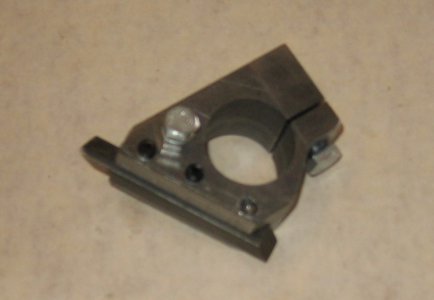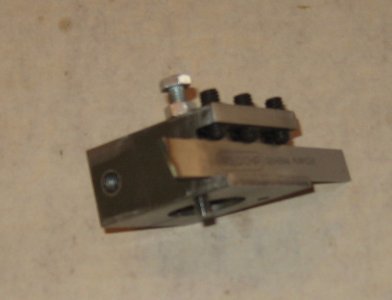Oh, where to begin??
Dx camlock spindle. Threaded spindles can do good work, but the camlock spindles are more versatile and easier to use. If your work is primarily in the sub-inch realm and starts with round stock, consider a collet chuck to go with. You won't regret that decision.
I started with a 12X36, graduated to a 14X40, but I ended up with the lathe of my dreams, a LeBlond 15X60. Most of 'my work' is using the larger sizes. the 40" bed is fine for rifle work, but I needed the rigidity of the 3500 lb lathe.
On toolholders: I still use my lantern ("American Rocker" tool post, I love my 4-way tool post , but I also use my Aloris QCTP as well. they all work well. The Aloris is nice as a general purpose TP, but for taking really heavy cuts, my 4-way works better. Another good choice is the Multifix. There's a good one made in Germany that's around the same price as the Aloris, but holders are more expensive.
In 40 years I've never used my taper attachment. Probably never will. All my tapers have been short enough to use the compound. The compound is far easier to set up than a taper attachment.
If you are going for CNC, pay very close attention to the ways. the "old iron" machines like the Le Blond, feature slant ways that last a LOT longer in CNC use. if the lathe has puny Yee ways, expect it to wear out very fast. Also pay attention to the oiling system for the ways - the better the lubrication, the longer it will last. For CNC work wyou need the biggest contact area you can get. That's why real CNC lathes usually use box ways.
On tooling, carbide is a good choice to begin with, except for parting.... HSS parting tools are easy to sharpen and seem to cut better on small machines, but that's just my experience on my 13" lathe...
Get the best KEYED chuck for the tailstock that you can afford. My Jacobs is 40 years old and is still gripping very well, with no signs of wear. Keyless tend to overtighten as the drill tries to turn, and it wears the jaws out faster.
But the main thing that I wish I knew before buying a lathe, is that it can be easy to spend 2000$ on tooling for it. The wider range of things you are doing the more costly your tooling is. On my small lathe that cost me 2K$, I've put around 2K into it, not including inserts and other consumables.
Buyt the best lathe chucks you can afford. I screwed around with cheaper chucks for a long time and now I love my Pratt-Burnard chucks. Money well spent. If you have to economize, the 4 jaw chuck is the place. getting a good running 3 jaw chuck will save you a lot of time and ruined parts. - If you are going PM, see if you can upgrade to Taiwanese made chucks, or better yet, get the whole Taiwanese package.
You can look at buying a tiny lathe to get some experience and help you figure out what you need to do, and your thoughts might change on what you need to buy to do what you want to do. Your plan might be to 'trade up' after you gain enough experience, or if you decide the hobby isn't for you, the downside is less...


